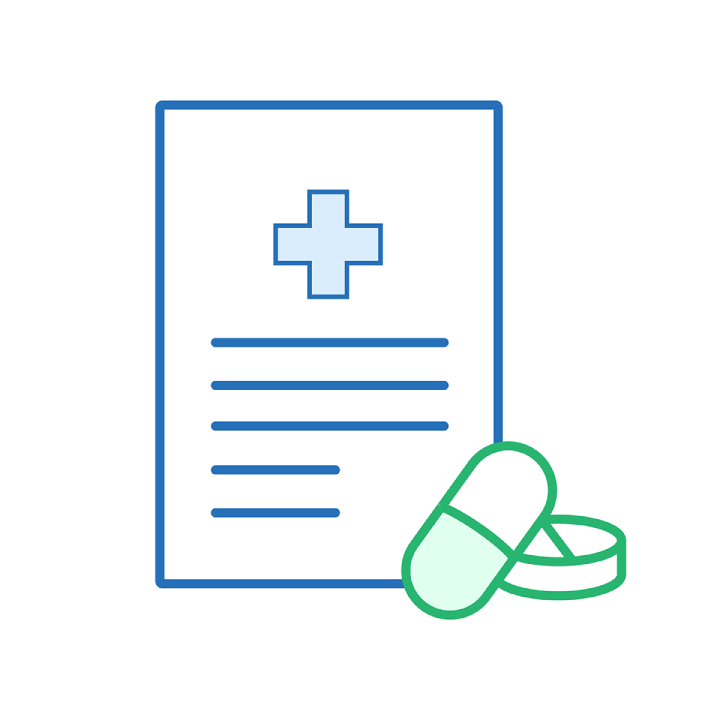Generic Equivalent to Seroquel (Quetiapine) 25mg
 Prescription Required Why?
Prescription Required Why?
Quetiapine, sold under the brand name Seroquel among others, is a medication primarily used to treat schizophrenia and bipolar disorder. It works by restoring the balance of certain natural substances in the brain to improve mood, thinking, and behavior. Quetiapine belongs to a class of medications known as atypical antipsychotics.
| Generic / Brand | GENERIC |
|---|---|
| Generic Name | Quetiapine |
| Dispensing Country | India |
Quetiapine, sold under the brand name Seroquel among others, is a medication primarily used to treat schizophrenia and bipolar disorder. It works by restoring the balance of certain natural substances in the brain to improve mood, thinking, and behavior. Quetiapine belongs to a class of medications known as atypical antipsychotics.
Unique Benefits over Other Similar Products:
-
Versatility: Quetiapine is approved for the treatment of both schizophrenia and bipolar disorder, offering versatility in managing various mental health conditions.
-
Extended Release Formulation: Some formulations of quetiapine are available in extended-release tablets, allowing for once-daily dosing, which may improve convenience and adherence to treatment.
-
Efficacy: Clinical studies have demonstrated the efficacy of quetiapine in reducing symptoms associated with schizophrenia, bipolar disorder, and major depressive disorder.
-
Safety Profile: Quetiapine has a relatively favorable safety profile compared to some other antipsychotic medications, with a lower risk of certain side effects such as extrapyramidal symptoms.
-
Off-Label Uses: Quetiapine is sometimes prescribed off-label for the treatment of other conditions such as anxiety disorders, insomnia, and post-traumatic stress disorder (PTSD), providing potential benefits beyond its approved indications.
Caution:
-
Quetiapine may cause drowsiness, dizziness, or blurred vision. Avoid driving or operating machinery until you know how this medication affects you.
-
This medication may also cause a condition known as orthostatic hypotension, characterized by a sudden drop in blood pressure upon standing. Rise slowly from a sitting or lying position to minimize the risk of dizziness or fainting.
-
Quetiapine should not be abruptly discontinued without consulting your healthcare provider, as withdrawal symptoms may occur.
-
Inform your healthcare provider about all medications, supplements, and herbal products you are currently taking to avoid potential drug interactions.
Directions:
-
Take quetiapine exactly as prescribed by your healthcare provider. Do not adjust your dose or stop taking the medication without consulting your doctor.
-
Swallow extended-release tablets whole, without chewing or crushing.
-
It may take several weeks to experience the full benefits of quetiapine. Continue taking the medication as directed, even if you start to feel better.
Frequently Asked Questions:
Q: How long does it take for quetiapine to work?
A: The onset of action of quetiapine varies depending on the individual and the condition being treated. Some individuals may start to experience symptom relief within a few days to weeks of starting treatment, while others may require a longer duration.
Q: What are the common side effects of quetiapine?
A: Common side effects of quetiapine may include drowsiness, dizziness, dry mouth, constipation, and weight gain. Be sure to discuss any bothersome side effects with your healthcare provider.
Q: Can quetiapine be taken with other medications?
A: Quetiapine has the potential to interact with other medications, including antidepressants, anticonvulsants, and certain antibiotics. It's important to inform your healthcare provider about all medications you are currently taking to avoid potential drug interactions.
Q: Is quetiapine addictive?
A: Quetiapine is not considered addictive. However, abrupt discontinuation of the medication may lead to withdrawal symptoms. It is important to follow your healthcare provider's instructions when discontinuing quetiapine.
